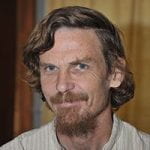Monday, February 7th, 2022
12:30 p.m. – 2:00 p.m. ET
via Zoom
We were pleased to invite you to the 16th webinar of the “Facing Inequality” series, hosted by the Institute for International Economic Policy. In this webinar, Dr. Charlotte Bartels discussed her current research on “The Distribution of Wealth in Germany, 1895 to 2018.” This event featured Federal Reserve Principal Economist Alice Henriques Volz as a discussant. IIEP Director Jay Shambaugh provided welcoming remarks and moderated the event.
Dr. Bartels presented the first comprehensive study of the long-run evolution of wealth inequality in Germany. Her paper presents a combination of tax data, surveys, national accounts and rich lists used to study wealth and its distribution in Germany from 1895 to 2018. Her research finds that in the long run, the concentration of wealth in the hands of the top 1% has fallen by half, from close to 50% in 1895 to 27% today. Nearly all of this decline was the result of various shocks that occurred between 1914 and 1952. The interwar period as well as World War II and its aftermath stand out as the great equalizers in 20th century German history. Her research also shows that two off-setting trends have shaped the German wealth distribution since unification. Households at the top made substantial capital gains from rising equity valuations that were counterbalanced by large middle-class capital gains from rising house prices and substantial savings. By contrast, the wealth share of the bottom 50% has halved in the past 30 years.
The “Facing Inequality” virtual series focuses on current and emerging inequality issues in the U.S. and around the globe – especially those revealed by the current COVID-19 pandemic. It brings together historians, economists, sociologists, political scientists, and epidemiologists, within the academy and without, to present work and discuss ideas that can facilitate new interdisciplinary approaches to the problem of inequality. This is a platform for dialogue and debate. We invite you to engage with us in this series of important discussions.
About the Speaker:
 Dr. Charlotte Bartels is a post-doctoral researcher at the German Institute for Economic Research (DIW). For the academic year 2021/2022, she is a Kennedy fellow at the Center for European Studies at Harvard University. In 2020, she was Visiting Associate Professor at the City University New York (CUNY). Her research interests lie in the fields of public economics, labor economics and economic history. She is particularly concerned with the long-run dynamics of income and wealth distributions and the political consequences of rising inequality. Another focus of her research is the redistributive and stabilizing impact of welfare state institutions and their incentives. She contributes to the German series for the World Inequality Database (WID). Bartels received her Ph.D. in economics from the Freie Universität Berlin.
Dr. Charlotte Bartels is a post-doctoral researcher at the German Institute for Economic Research (DIW). For the academic year 2021/2022, she is a Kennedy fellow at the Center for European Studies at Harvard University. In 2020, she was Visiting Associate Professor at the City University New York (CUNY). Her research interests lie in the fields of public economics, labor economics and economic history. She is particularly concerned with the long-run dynamics of income and wealth distributions and the political consequences of rising inequality. Another focus of her research is the redistributive and stabilizing impact of welfare state institutions and their incentives. She contributes to the German series for the World Inequality Database (WID). Bartels received her Ph.D. in economics from the Freie Universität Berlin.
About the Discussants:
 Alice Henriques Volz is a principal economist at the Federal Reserve Board. At the Board, Alice works in the Microeconomic Surveys section, which oversees the Survey of Consumer Finances. Her research interests focus on inequality and retirement. Current research projects include retirement preparation across cohorts and the wealth distribution and understanding trends in wealth and income inequality. She received her Ph.D. in economics from Columbia University and a B.A. from University of California at Berkeley.
Alice Henriques Volz is a principal economist at the Federal Reserve Board. At the Board, Alice works in the Microeconomic Surveys section, which oversees the Survey of Consumer Finances. Her research interests focus on inequality and retirement. Current research projects include retirement preparation across cohorts and the wealth distribution and understanding trends in wealth and income inequality. She received her Ph.D. in economics from Columbia University and a B.A. from University of California at Berkeley.
 Trevor Jackson is an assistant professor of economic history at George Washington University, where he teaches the history of inequality and economic crisis. He works on early modern European economic history, with an emphasis on inequality and financial crisis. His book manuscript, Impunity and Capitalism: Afterlives of European Financial Crisis, 1680-1830, is under contract with Cambridge University Press. It examines how changes in the scope for prosecutorial discretion, technical complexity, and the international mobility of capital diffused the capacity to act with impunity in the economy across the very long eighteenth century. The project argues that impunity has shifted from the sole possession of a legally-immune sovereign to a functional characteristic of technically-skilled professional managers of capital, to an imagined quality of markets themselves, such that a constituent element of the modern economic sphere is that within it, great harm can and will happen to great many people, and nobody will be at fault. Dr. Jackson has taught courses on international economic history ranging from the early modern period to the twentieth century, as well as courses on capitalism and inequality, the history of economic crisis, and the history of human rights. Prior to joining the faculty at the George Washington University, he lectured at the University of California, Berkeley.
Trevor Jackson is an assistant professor of economic history at George Washington University, where he teaches the history of inequality and economic crisis. He works on early modern European economic history, with an emphasis on inequality and financial crisis. His book manuscript, Impunity and Capitalism: Afterlives of European Financial Crisis, 1680-1830, is under contract with Cambridge University Press. It examines how changes in the scope for prosecutorial discretion, technical complexity, and the international mobility of capital diffused the capacity to act with impunity in the economy across the very long eighteenth century. The project argues that impunity has shifted from the sole possession of a legally-immune sovereign to a functional characteristic of technically-skilled professional managers of capital, to an imagined quality of markets themselves, such that a constituent element of the modern economic sphere is that within it, great harm can and will happen to great many people, and nobody will be at fault. Dr. Jackson has taught courses on international economic history ranging from the early modern period to the twentieth century, as well as courses on capitalism and inequality, the history of economic crisis, and the history of human rights. Prior to joining the faculty at the George Washington University, he lectured at the University of California, Berkeley.
About the Moderator:
 Jay Shambaugh is Professor of Economics and International Affairs, and Director of the Institute for International Economic Policy at the Elliott School of International Affairs, George Washington University. His area of research is macroeconomics and international economics. He has had two stints in public service. He served as a Member of the White House Council of Economic Advisors from 2015-2017. Earlier, he served on the staff of the CEA as a Senior Economist for International Economics and then as the Chief Economist. He also spent 3 years as the Director of the Hamilton Project at the Brookings Institution. Jay is also a Faculty Research Fellow at the NBER and Non-Resident Senior Fellow in Economic Studies at Brookings. Prior to joining the faculty at George Washington, Jay taught at Georgetown and Dartmouth and was a visiting scholar at the IMF. He received his Ph.D. in economics from the University of California at Berkeley, an M.A. from the Fletcher School at Tufts, and a B.A. from Yale University.
Jay Shambaugh is Professor of Economics and International Affairs, and Director of the Institute for International Economic Policy at the Elliott School of International Affairs, George Washington University. His area of research is macroeconomics and international economics. He has had two stints in public service. He served as a Member of the White House Council of Economic Advisors from 2015-2017. Earlier, he served on the staff of the CEA as a Senior Economist for International Economics and then as the Chief Economist. He also spent 3 years as the Director of the Hamilton Project at the Brookings Institution. Jay is also a Faculty Research Fellow at the NBER and Non-Resident Senior Fellow in Economic Studies at Brookings. Prior to joining the faculty at George Washington, Jay taught at Georgetown and Dartmouth and was a visiting scholar at the IMF. He received his Ph.D. in economics from the University of California at Berkeley, an M.A. from the Fletcher School at Tufts, and a B.A. from Yale University.




 Nils Grede assumed the position of World Food Programme Representative (WFP) for Turkey in September 2017. Before arriving to Turkey, he was the Representative in El Salvador. Prior to his current position, Mr. Grede gained experience as WFP Deputy Director in Jakarta, Indonesia (2013-2014). He temporarily served as WFP Interim Deputy Director in Brazzaville, Congo (2013) and WFP Interim Country Director in Mbabane, Swaziland (2012-2013). Before that he was Deputy Chief of Nutrition and HIV/AIDS Policy at WFP’s Headquarters. Prior to joining WFP, he was Director of International Recruitment Marketing at Boston Consulting Group (2008 and 2009) and Principal Director at Boston Consulting Group in Los Angeles, California (2001-2005). Mr. Grede is a German national and is fluent in eight languages: German, English, Spanish, French, Italian, Portuguese, Arabic, Hebrew. He is quickly working on improving his Turkish. He holds a Bachelor’s and Master’s degree in Islamic and Middle Eastern Sciences received from the Hebrew University of Jerusalem, Israel. Grede has also received an MBA from Stanford University.
Nils Grede assumed the position of World Food Programme Representative (WFP) for Turkey in September 2017. Before arriving to Turkey, he was the Representative in El Salvador. Prior to his current position, Mr. Grede gained experience as WFP Deputy Director in Jakarta, Indonesia (2013-2014). He temporarily served as WFP Interim Deputy Director in Brazzaville, Congo (2013) and WFP Interim Country Director in Mbabane, Swaziland (2012-2013). Before that he was Deputy Chief of Nutrition and HIV/AIDS Policy at WFP’s Headquarters. Prior to joining WFP, he was Director of International Recruitment Marketing at Boston Consulting Group (2008 and 2009) and Principal Director at Boston Consulting Group in Los Angeles, California (2001-2005). Mr. Grede is a German national and is fluent in eight languages: German, English, Spanish, French, Italian, Portuguese, Arabic, Hebrew. He is quickly working on improving his Turkish. He holds a Bachelor’s and Master’s degree in Islamic and Middle Eastern Sciences received from the Hebrew University of Jerusalem, Israel. Grede has also received an MBA from Stanford University. Felix Schmieding is a Senior Statistician with the World Bank – UNHCR Joint Data Center on Forced Displacement. Earlier work includes assignments with UNHCR, UNDP, and the UN Statistics Division. Felix has implemented or provided technical assistance to numerous statistical activities in Asia, Africa, and the Caribbean – including living conditions surveys, labour force surveys, population censuses, and administrative registers. He has worked closely with the National Statistical Offices and National Statistical Systems of various countries, building technical and institutional capacity. He has also held key roles in global processes aiming at the development of international statistical standards under the auspices of the UN Statistical Commission. Felix has advised on the analysis of multi-dimensional poverty on various occasions, including for the 2012 population census in Rwanda and a 2018 survey of refugees in Kenya. He holds an M.Sc degree from the University of Oxford.
Felix Schmieding is a Senior Statistician with the World Bank – UNHCR Joint Data Center on Forced Displacement. Earlier work includes assignments with UNHCR, UNDP, and the UN Statistics Division. Felix has implemented or provided technical assistance to numerous statistical activities in Asia, Africa, and the Caribbean – including living conditions surveys, labour force surveys, population censuses, and administrative registers. He has worked closely with the National Statistical Offices and National Statistical Systems of various countries, building technical and institutional capacity. He has also held key roles in global processes aiming at the development of international statistical standards under the auspices of the UN Statistical Commission. Felix has advised on the analysis of multi-dimensional poverty on various occasions, including for the 2012 population census in Rwanda and a 2018 survey of refugees in Kenya. He holds an M.Sc degree from the University of Oxford.


 Rohini Pande is the Henry J. Heinz II Professor of Economics and Director of the Economic Growth Center, Yale University. She is a co-editor of American Economic Review: Insights. Pande’s research is largely focused on how formal and informal institutions shape power relationships and patterns of economic and political advantage in society, particularly in developing countries. She is interested in the role of public policy in providing the poor and disadvantaged political and economic power, and how notions of economic justice and human rights can help justify and enable such change. Her most recent work focuses on testing innovative ways to make the state more accountable to its citizens, such as strengthening women’s economic and political opportunities, ensuring that environmental regulations reduce harmful emissions, and providing citizens effective means to voice their demand for state services. In 2018, Pande received the Carolyn Bell Shaw Award from the American Economic Association for promoting the success of women in the economics profession. She is the co-chair of the Political Economy and Government Group at Jameel Poverty Action Lab (J-PAL), a Board member of Bureau of Research on Economic Development (BREAD) and a former co-editor of The Review of Economics and Statistics. Before coming to Yale, Pande was the Rafik Harriri Professor of International Political Economy at Harvard Kennedy School, where she co-founded Evidence for Policy Design. Pande received a Ph.D. in economics from London School of Economics, a BA/MA in Philosophy, Politics and Economics from Oxford University and a BA in Economics from Delhi University.
Rohini Pande is the Henry J. Heinz II Professor of Economics and Director of the Economic Growth Center, Yale University. She is a co-editor of American Economic Review: Insights. Pande’s research is largely focused on how formal and informal institutions shape power relationships and patterns of economic and political advantage in society, particularly in developing countries. She is interested in the role of public policy in providing the poor and disadvantaged political and economic power, and how notions of economic justice and human rights can help justify and enable such change. Her most recent work focuses on testing innovative ways to make the state more accountable to its citizens, such as strengthening women’s economic and political opportunities, ensuring that environmental regulations reduce harmful emissions, and providing citizens effective means to voice their demand for state services. In 2018, Pande received the Carolyn Bell Shaw Award from the American Economic Association for promoting the success of women in the economics profession. She is the co-chair of the Political Economy and Government Group at Jameel Poverty Action Lab (J-PAL), a Board member of Bureau of Research on Economic Development (BREAD) and a former co-editor of The Review of Economics and Statistics. Before coming to Yale, Pande was the Rafik Harriri Professor of International Political Economy at Harvard Kennedy School, where she co-founded Evidence for Policy Design. Pande received a Ph.D. in economics from London School of Economics, a BA/MA in Philosophy, Politics and Economics from Oxford University and a BA in Economics from Delhi University. Jayati Ghosh taught economics at Jawaharlal Nehru University, New Delhi for nearly 35 years. From January 2020 she will join the University of Massachusetts at Amherst, USA. She has authored and/or edited 19 books (including “Never Done and Poorly Paid: Women’s Work in Globalising India”, Women Unlimited, New Delhi 2009; the co-edited “Elgar Handbook of Alternative Theories of Economic Development, 2014, “Demonetisation Decoded”, Routledge 2017 and “Women workers in the informal economy”, Routledge forthcoming) and nearly 200 scholarly articles. She has received several prizes, including for distinguished contributions to the social sciences in India in 2015; the International Labour Organisation’s Decent Work Research Prize for 2010; the NordSud Prize for Social Sciences 2010, Italy. She has advised governments in India and other countries, including as Chairperson of the Andhra Pradesh Commission on Farmers’ Welfare in 2004, and Member of the National Knowledge Commission of India (2005-09). She is the Executive Secretary of International Development Economics Associates, an international network of heterodox development economists. She has consulted for international organisations including ILO, UNDP, UNCTAD, UN-DESA, UNRISD and UN Women and is member of several international commissions, including the International Commission for the Reform of International Corporate Taxation (ICRICT) and the Commission for Global Economic Transformation of INET. She writes regularly for popular media like newspapers, journals and blogs.
Jayati Ghosh taught economics at Jawaharlal Nehru University, New Delhi for nearly 35 years. From January 2020 she will join the University of Massachusetts at Amherst, USA. She has authored and/or edited 19 books (including “Never Done and Poorly Paid: Women’s Work in Globalising India”, Women Unlimited, New Delhi 2009; the co-edited “Elgar Handbook of Alternative Theories of Economic Development, 2014, “Demonetisation Decoded”, Routledge 2017 and “Women workers in the informal economy”, Routledge forthcoming) and nearly 200 scholarly articles. She has received several prizes, including for distinguished contributions to the social sciences in India in 2015; the International Labour Organisation’s Decent Work Research Prize for 2010; the NordSud Prize for Social Sciences 2010, Italy. She has advised governments in India and other countries, including as Chairperson of the Andhra Pradesh Commission on Farmers’ Welfare in 2004, and Member of the National Knowledge Commission of India (2005-09). She is the Executive Secretary of International Development Economics Associates, an international network of heterodox development economists. She has consulted for international organisations including ILO, UNDP, UNCTAD, UN-DESA, UNRISD and UN Women and is member of several international commissions, including the International Commission for the Reform of International Corporate Taxation (ICRICT) and the Commission for Global Economic Transformation of INET. She writes regularly for popular media like newspapers, journals and blogs. James E. Foster is the Oliver T. Carr, Jr. Professor of International Affairs, Professor of Economics, and Co-Director of the Institute for International Economic Policy at the George Washington University. He is also a Research Associate at the Oxford Poverty and Human Development Initiative at Oxford University. Professor Foster’s research focuses on welfare economics — using economic tools to evaluate and enhance the wellbeing of people. His joint 1984 Econometrica paper (with Joel Greer and Erik Thorbecke) is one of the most cited papers on poverty. It introduced the FGT Index, which has been used in thousands of studies and was employed in targeting the Progresa CCT program in Mexico. Other research includes work on economic inequality with Amartya Sen; on the distribution of human development with Luis Felipe Lopez-Calva and Miguel Szekely; on multidimensional poverty with Sabina Alkire; and on literacy with Kaushik Basu.
James E. Foster is the Oliver T. Carr, Jr. Professor of International Affairs, Professor of Economics, and Co-Director of the Institute for International Economic Policy at the George Washington University. He is also a Research Associate at the Oxford Poverty and Human Development Initiative at Oxford University. Professor Foster’s research focuses on welfare economics — using economic tools to evaluate and enhance the wellbeing of people. His joint 1984 Econometrica paper (with Joel Greer and Erik Thorbecke) is one of the most cited papers on poverty. It introduced the FGT Index, which has been used in thousands of studies and was employed in targeting the Progresa CCT program in Mexico. Other research includes work on economic inequality with Amartya Sen; on the distribution of human development with Luis Felipe Lopez-Calva and Miguel Szekely; on multidimensional poverty with Sabina Alkire; and on literacy with Kaushik Basu. Ajay Chhibber is a Distinguished Visiting Scholar, Institute of International Economic Policy, George Washington University and Non-Resident Senior Fellow, the Atlantic Council, Washington DC. He was earlier Director General, Independent Evaluation Office, Government of India and Distinguished Visiting Professor at the National Institute of Public Finance and Policy (NIPFP), India. He held senior positions at the UN as Assistant Secretary General and Assistant Administrator, UNDP and managed their program for Asia and the Pacific. He also served in senior positions at the World Bank. He has a Ph.D. from Stanford University, a Masters from the Delhi School of Economics. He taught at Georgetown University and at the University of Delhi.
Ajay Chhibber is a Distinguished Visiting Scholar, Institute of International Economic Policy, George Washington University and Non-Resident Senior Fellow, the Atlantic Council, Washington DC. He was earlier Director General, Independent Evaluation Office, Government of India and Distinguished Visiting Professor at the National Institute of Public Finance and Policy (NIPFP), India. He held senior positions at the UN as Assistant Secretary General and Assistant Administrator, UNDP and managed their program for Asia and the Pacific. He also served in senior positions at the World Bank. He has a Ph.D. from Stanford University, a Masters from the Delhi School of Economics. He taught at Georgetown University and at the University of Delhi.